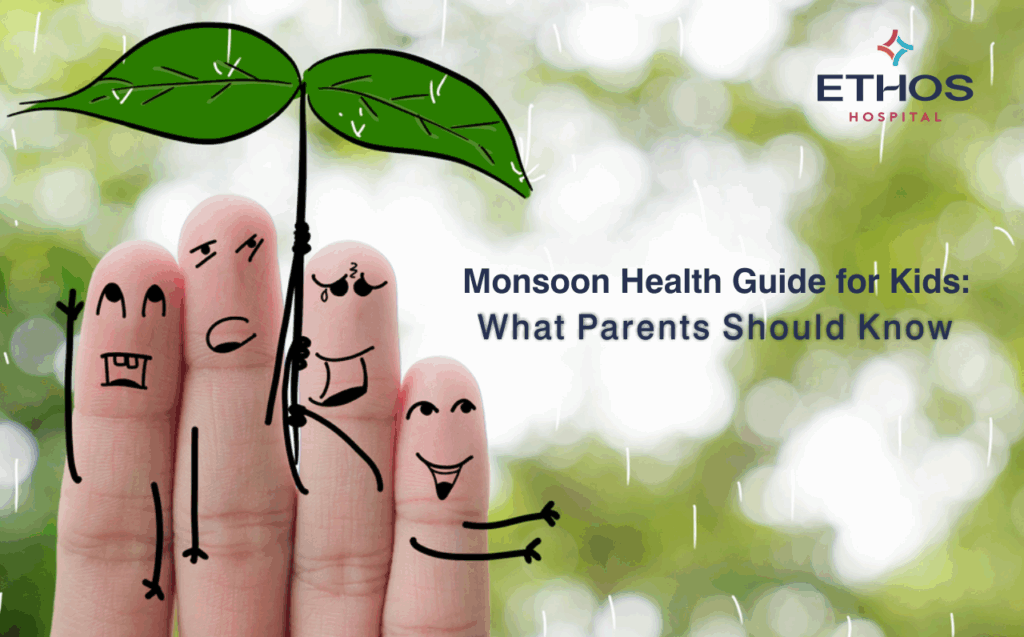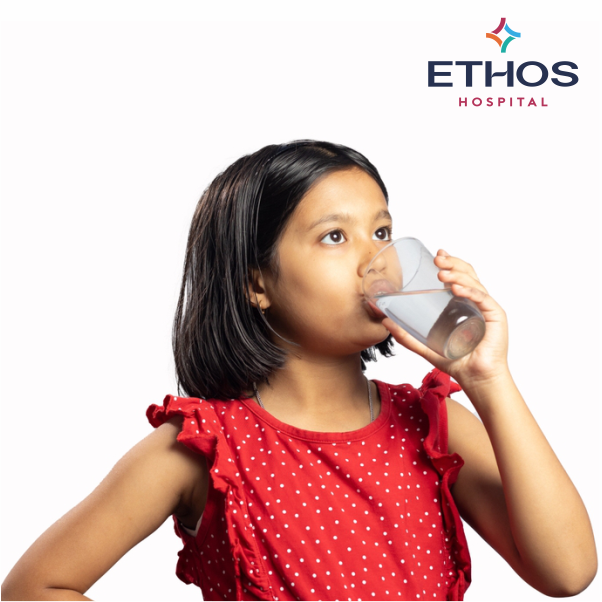The monsoon season brings much-needed relief from the sweltering summer, but for parents, it also marks a time to be extra vigilant about their children’s health. While puddles, paper boats, and the sound of raindrops may excite little ones, the damp and humid environment is a breeding ground for infections and illnesses.

Increased humidity, stagnant water, and fluctuating temperatures create an environment ripe for infections and diseases, especially among kids whose immune systems are still developing. Here are 6 key ways for parents to help navigate common monsoon health challenges:
1.Boost immunity
Children have developing immune systems, which can make them more vulnerable to infections. A balanced diet rich in fresh fruits, vegetables, and immune-boosting foods like citrus fruits, yogurt, and nuts helps build resistance. Include foods with natural immunity-boosting properties such as turmeric milk, citrus fruits, carrots, spinach, and dry fruits like almonds and walnuts. Avoid cold or refrigerated food and ensure meals are freshly cooked and served warm. Prefer home-cooked, warm meals and avoid roadside food, raw salads, and cut fruits or uncovered snacks that may be contaminated. Remember to wash fruits and vegetables thoroughly before consumption.

2. Ensure safe drinking water
Waterborne diseases such as cholera, typhoid, and diarrhea are common during the monsoon due to contaminated water sources. Always provide your child with boiled or filtered water to prevent waterborne infections. Discourage them from drinking water or juices from outside vendors, and ensure they carry their own water bottle when stepping out. Avoid using ice from unreliable sources, as it may be made from contaminated water. Coconut water, homemade soups, and seasonal fruit juices can be healthy alternatives. Avoid outside beverages like sugarcane juice or unsealed water bottles. Ensure your child washes hands frequently with soap—especially before meals and after using the washroom.

3.Protect against mosquitoes
Monsoon is prime time for mosquito-borne diseases and stagnant water is a mosquito’s playground, making dengue, malaria, and chikungunya common concerns. Eliminate stagnant water around your home to prevent mosquito breeding and ensure the home is free from breeding grounds—empty flower pots, coolers, and water collection trays regularly. Prevent mosquito bites by dressing your child in long-sleeved clothing and pants, especially during dawn and dusk. Use mosquito repellents (preferably those recommended by paediatricians), and install nets or screens on windows and doors.

4.Prioritize hygiene
Good hygiene is the first line of defence against monsoon-related illnesses. Encourage your child to wash their hands frequently with soap and water, especially before meals and after using the restroom or playing outside. Keep their nails trimmed and clean to prevent the accumulation of dirt and germs, which can lead to fungal infections and stomach upsets. Regularly clean and disinfect frequently touched surfaces and toys to minimize the risk of infection. Damp clothes and wet shoes can lead to fungal infections, especially in areas like the armpits, feet, and groin. Ensure children wear breathable cotton clothes and keep their skin dry.

5.Monitor for allergies and respiratory issues
Humidity can aggravate asthma, allergic rhinitis, and other respiratory conditions. Watch for symptoms such as high fever, persistent cough, vomiting, diarrhea, or rashes. Watch for symptoms like coughing, sneezing, or wheezing and consult a paediatrician promptly if needed. Seek prompt medical attention if any of these signs appear, as early intervention can prevent complications. Ensure your child’s vaccinations are up to date, including those for typhoid, influenza, and MMR, which offer extra protection during the monsoon.

6. Keep children active indoors
Rainy days can limit outdoor play, but physical activity is still important. Avoid letting children play in muddy puddles or in wet clothes, as these can lead to skin infections or injuries. Encourage indoor games, crafts, dancing, or simple indoor exercises to keep children active and entertained.

Summing Up
Monsoon can be magical when enjoyed with care. By following the above-mentioned essential tips, parents can help their children enjoy the joys of the monsoon season while minimizing health risks. Remember, a little extra care goes a long way in ensuring a safe, healthy, and happy rainy season for your children.




